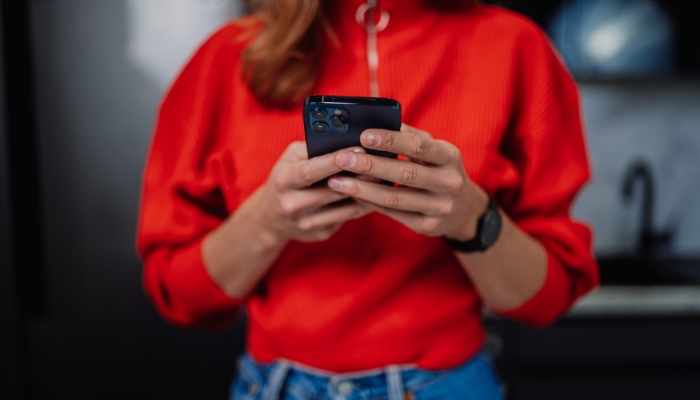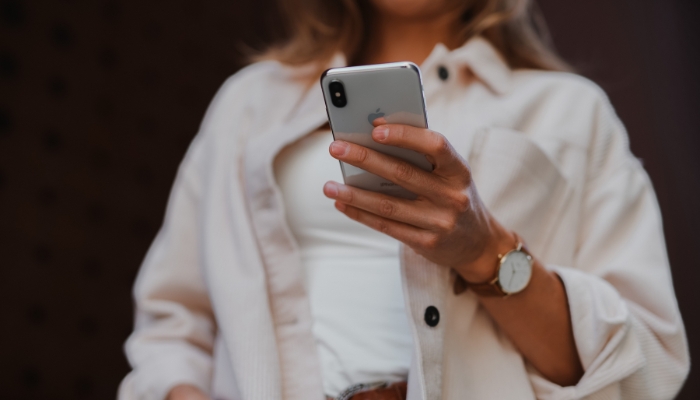
You’re swiping right but feeling wrong. Dating apps, meant to connect you with ‘the one’, often leave you feeling more disconnected. You’re not alone.
he sentiment “why are dating apps so bad” arises because these apps can lead to superficial connections and mismatched expectations. Users often feel overwhelmed by too many choices and the impersonal nature of online interactions, which can result in disappointing experiences.
This article about why are dating apps so bad explores why these apps can feel so harmful, diving into psychological impacts, culture of disposability, gamified romance, and skewed gender dynamics. Let’s delve into the world of digital dating to understand its pitfalls and how we can navigate them better.
Table of contents
The Psychological Impact of Dating Apps
You’re probably aware that dating apps can impact your self-esteem and mental health, but have you ever stopped to consider how profound that impact can be? Drawing on the insights and experiences of Nancy Jo Sales, we’ll explore this issue further.
We’ll also tackle the paradox of choice in dating – the notion that having too many options can actually make it harder to make a decision.
How dating apps affect self-esteem and mental health
How often have you considered the psychological impact of dating apps on your self-esteem and mental health? It’s easy to overlook, but frequent use can lead to negative experiences impacting your mental well-being. The ‘paradox of choice’ concept applies here too. With an endless stream of potential matches, especially on the dating app with most users, it’s hard to feel satisfied and easy to feel overwhelmed.
Repeated rejection or failure to match can chip away at your self-esteem, making you question your worth. Even if you’re successful, the superficial nature of these apps can leave you feeling empty and unfulfilled.
It’s critical to monitor your usage, prioritize real connections, and remember that your value isn’t defined by a dating app. Your mental health matters more than a swipe right.
Insights from Nancy Jo Sales’s experiences and research
Let’s delve into what Nancy Jo Sales, an acclaimed journalist and filmmaker, has uncovered about the psychological impact of dating apps on your well-being.
Sales found that the online dating experience can often be demoralizing. Many dating app users reported feeling more lonely and low after bad dates or rejection.
The modern dating process, with its endless pool of potential partners, can foster a throwaway mentality, making it harder to form meaningful connections. The superficial nature of these apps can also lead to deceptive presentations and disappointed expectations.
The paradox of choice and its impact on decision-making in dating
Consider the paradox of choice when you’re swiping through dating apps: the more options you have, the harder it becomes to make a decision. This paradox stems from the overwhelming amount of potential dates on online dating sites. It’s a double-edged sword that can impact your decision-making in dating.
Here are some ways the paradox of choice can affect you:
- You might feel overwhelmed and thus unable to decide.
- The fear of missing out might prevent you from settling on a choice.
- You might keep comparing potential dates, leading to dissatisfaction.
- You might regret your decision, thinking there’s always someone better.
- Ultimately, dating apps could make you more indecisive, not less.
The Culture of Disposability

You might’ve noticed how dating apps seem to foster a ‘throwaway’ mentality towards relationships. This mindset, fueled by an endless array of choices, can make commitment and satisfaction feel like unreachable goals.
It’s a tough reality to face, but you’re not alone; many users share experiences of feeling disposable or treating others in the same careless manner.
How dating apps promote a disposable view of relationships?
In the realm of dating apps, it’s easy to fall into a cycle of viewing relationships as disposable, always moving onto the next match without fully investing in the current one. The experience can be deceptively simple – swipe, match, chat, repeat. But remember, the person behind that profile is a real life, quality individual with their own unique lifestyle choices and hopes for long-term relationships.
Dating apps can foster a culture of disposability:
- They provide a seemingly endless supply of potential partners, reducing the perceived value of each.
- It’s easy to become a dating app user who’s always in search of the next best thing.
- The quick and impersonal nature of these platforms can make connections feel disposable.
- The focus often shifts from finding a quality person to amassing matches.
- The convenience can undermine the effort required to build real, meaningful relationships.
Effect of endless choices on commitment and satisfaction
With dating apps’ endless choices at your fingertips, it’s easy to see how your commitment to a single match can waver and your overall satisfaction diminish. You’re always aware there’s another potential partner just a swipe away, and this can lessen the value you place on any one connection.
This culture of disposability isn’t beneficial for your mental health either. Constantly weighing up options, rejecting, and being rejected can take a toll on your self-esteem.
The overwhelming choice can also lead to decision fatigue, reducing the success rate of finding a meaningful relationship through these apps.
Personal anecdotes from users feeling disposable or treating others as such
Despite the convenience of dating apps, many users often feel like a disposable commodity, treated with little regard or respect by potential matches. This culture of disposability is rampant and can be emotionally draining. Personal anecdotes are numerous, with many users feeling disposable or admitting to treating others as such.
A user may feel that their online dating profile isn’t valued, leading them to feel disposable. Some users have experienced being ghosted after what they thought was a promising interaction.
Many people admit to swiping right on multiple profiles without considering the person behind them. Others have experienced being treated as a ‘backup’ option.
Some users confess to treating others as disposable due to the overwhelming choice. Dating apps have undoubtedly revolutionized how we connect, but this culture of disposability is a concerning by-product.
The Gamification of Romance
You might’ve noticed how dating apps turn romance into a game. But have you wondered about the real impact of this trend on genuine human connections? It’s not just about swiping left or right. It’s about how these platforms are reshaping our understanding of relationships.
Let’s compare this with old-school dating methods to get a clear picture.
Analysis of how dating apps gamify dating and relationships
Although it may seem like a fun and efficient way to meet people, dating apps tend to gamify the process of forming romantic relationships, turning what should be a personal, intimate experience into a competitive, impersonal game.
Dating apps create an illusion of endless potential mates, dopamine spiking each time you swipe right. The emphasis on profile pictures prioritizes physical attraction, diminishing the importance of emotional compatibility. The instant gratification from matches encourages superficiality over meaningful connections.
The lack of response rate transparency fuels a sense of competition and anxiety. The gamification of dating and relationships reduces romance to a numbers game.
Impact of this gamification on genuine human connections
While it’s easy to get caught up in the gamified world of dating apps, it’s important to remember that this can seriously hinder your ability to form genuine human connections. As a dating coach, I’ve seen how these popular dating apps can feed unrealistic expectations, leading to a waste of time and energy.
The swiping and matching process, while thrilling, often detracts from the real essence of dating – building committed relationships. The quest for better matches can also result in an endless cycle of disappointment, as the perfect match remains elusive. This largely stems from the apps’ propensity to promote quantity over quality.
But is this really the best way to find love? We’ll explore this further as we compare with traditional dating methods in the next section.
Comparisons with traditional dating methods
In comparison, traditional dating methods offer a vastly different experience, allowing you to foster deeper connections, as they focus less on the number of potential partners and more on the quality of the relationship. As a dating expert would tell you, offline dating gives you the opportunity to know a person in depth, not just from a profile picture or a bio.
- Offline dating provides you with a real-life interaction, not virtual.
- Traditional dating methods value quality over quantity.
- They encourage genuine human connection instead of mere swiping.
- They offer a more organic and sincere experience of dating.
- As an app user, you may miss out on the nuances of offline communication.
Gender Dynamics and Dating Apps

Let’s look at how dating apps impact different genders. You might’ve noticed that men and women often have vastly different experiences on these platforms.
Unfortunately, issues such as harassment, sexism, and inequality are still persistent problems in the realm of dating apps.
Exploration of how dating apps affect different genders
You might’ve noticed that dating apps can impact men and women differently, creating a complex dynamic that’s worth exploring. This exploration of how dating apps affect different genders can be eye-opening.
For instance, on platforms like Facebook dating and Bumble, you’ll find that:
- Men often feel pressure to make the first move
- Women may get overwhelmed by the abundance of matches
- Men might struggle with the competition for attention
- Women could find it difficult to find their ideal partner among numerous profiles
- Single women might feel burdened with planning dates
These points highlight the different experiences and challenges faced by men and women. It’s important to understand these dynamics to improve the dating app experience for everyone.
The experiences of women and men on these platforms
Navigating the world of dating apps, you’ll encounter several distinct experiences as a man or woman, each with its own set of challenges and dynamics.
As a woman, it’s like a part-time job, sifting through the worst photos and unsolicited messages. Your experience may be marred by apprehension due to the alarming rates of sexual assault tied to these platforms, as found by a Columbia Journalism investigation.
Meanwhile, as a man, you may feel pressure to stand out from the crowd on apps like Facebook Dating. You’re faced with crafting the perfect bio and picture. It’s a balancing act, trying to appear genuine, but not boring; confident, but not arrogant.
The gender dynamics on these platforms are complex, often leaving users feeling disheartened.
Issues of harassment, sexism, and inequality in dating apps
Facing the harsh reality of dating apps, you’ll find that issues of harassment, sexism, and inequality are, unfortunately, all too prevalent. These problems permeate the daily life of many users, especially women and people of color. Just ask any of the thousands of year-old women in San Francisco who’ve experienced these issues firsthand.
Here are some common challenges they face:
- Unsolicited explicit messages from strangers
- Discrimination based on race or ethnicity
- Stereotyping and objectification of attractive women
- Unequal power dynamics that favor male users
- Lack of accountability for offenders
The Illusion of Abundance

In the world of dating apps, there’s a prevailing belief that the next swipe might bring the perfect match. This belief fuels the illusion of abundance, a deceptive sense of endless possibilities.
While at first glance, this might seem like a benefit, it often leads to a paradox where having too many choices makes it harder to make any choice at all.
This phenomenon significantly impacts users’ Day To Day Life, altering how they perceive potential partners and their own worth in the dating market.
The Ripple Effect on Social Interactions
The idea that there are limitless options available at the swipe of a finger can drastically change how people interact in real life. Social Life dynamics shift as the mindset of “there’s always someone better” takes hold.
For Single People, especially those in the Age Range of 18-Year-Old Women and men, this can lead to a cycle of short-lived connections and unfulfilled expectations.
The Mental Health Effects of this cycle can be profound, as noted in studies like those from BMC Psychology, highlighting the emotional toll of such transient relationships.
Distorted Expectations and Relationship Goals
When users engage with dating apps, they often encounter a Laundry List of attributes they seek in a partner. This list, coupled with the Premium Features of these apps, can lead users down a Rabbit Hole of unrealistic expectations.
The emphasis on the Primary Photo or avoiding Bad Photos can overshadow the importance of deeper compatibility. Consequently, maintaining Realistic Expectations becomes challenging, leading to a disconnect between what users seek online and what they truly need in a partner.
Moreover, the illusion of abundance can hinder the development of Reasonable Expectations for long-term relationships. Many users find themselves becoming Time Wasters, engaging in endless browsing without the intent to commit.
This behavior not only affects the individual’s chances of finding a meaningful relationship but also impacts the overall dating culture, where the focus shifts from quality connections to quantity of matches.
In conclusion, the illusion of abundance on dating apps creates a complex web of challenges. It affects users’ perceptions, alters social dynamics, and sets unrealistic standards for relationships. As we navigate this digital dating era, it’s crucial to balance the allure of endless choices with the reality of human connection and the genuine pursuit of long-term happiness.
The Impact on Social Skills
In the age where dating apps are a staple in the romantic lives of many, there’s a growing concern about their impact on traditional, face-to-face social skills. The convenience and immediacy of these platforms have led to a significant shift in how people communicate and form connections.
This change is particularly evident in the Social Life of users, where the art of conversation and the nuances of in-person interactions are often overshadowed by the simplicity of swiping and texting.
The Shift in Communication Patterns
Dating apps have introduced a new lexicon and style of communication. The emphasis on quick, often superficial exchanges has led to a decline in the ability to engage in deep, meaningful conversations. This shift is not just limited to romantic contexts but spills over into other aspects of Day To Day Life.
For instance, the reliance on text-based communication can lead to challenges in interpreting non-verbal cues, which are crucial in understanding emotions and intentions in real-life interactions.
Moreover, the culture of judging potential partners based on their Primary Photo or a brief bio can lead to a skewed perception of what makes a connection valuable. This focus on surface-level attributes can diminish the importance of deeper qualities necessary for long-lasting relationships, impacting users’ ability to form meaningful connections offline.
Balancing Online and Offline Interactions
Finding a balance between online and offline socialization is crucial in the context of dating. While dating apps offer a convenient way to meet new people, especially for Single People, they should not replace the rich experiences of face-to-face interactions.
Engaging in real-world activities, from grabbing a Glass Of Wine with friends to participating in community events, can enhance social skills and provide opportunities for organic connections.
It’s also important to set Realistic Expectations about what dating apps can offer. They are tools for meeting people but not the ultimate solution for building relationships. Encouraging a healthy balance, where online interactions complement rather than dominate one’s social life, can mitigate the potential Mental Health Effects associated with over-reliance on digital communication.
In conclusion, while dating apps have transformed the landscape of dating, they also pose challenges to traditional social skills and face-to-face interactions. By recognizing these impacts and striving for a balance between digital and real-world socialization, individuals can navigate the dating world more effectively, fostering both online and offline connections that are rich, meaningful, and fulfilling.
Conclusion
So, you’ve seen how dating apps can mess with your mind, foster a throwaway mentality, turn love into a game, and skew gender dynamics.
It’s not all doom and gloom, though. Remember, you’re in control. You can choose to engage differently, opt for more authentic connections, and challenge biases.
Dating apps aren’t inherently bad, but how we use them can make all the difference. Here’s to finding love in a digital world, on your own terms, while navigating the complexities of why are dating apps so expensive.
FAQs: Why Are Dating Apps So Bad
Are Dating Apps Bad for Relationships?
While dating apps have revolutionized how we meet potential partners, they aren’t inherently bad for relationships. The key is how they are used. These platforms can expand social networks and introduce users to people they wouldn’t otherwise meet. However, the illusion of abundance and the emphasis on swiping can sometimes lead to superficial connections. It’s important to have Realistic Expectations and use these apps as a tool to complement, not replace, traditional methods of forming relationships.
Why Do Dating Apps Feel Unfulfilling?
Many users find dating apps unfulfilling due to the Mental Health Effects of the superficial nature of these platforms. The focus on Primary Photo selections and brief bios can lead to a Laundry List of desired traits, overlooking deeper compatibility. Additionally, the paradox of choice, where too many options lead to indecision, can make these apps feel like a never-ending Rabbit Hole of options without real connection.
How Have Dating Apps Changed Social Interactions?
Dating apps have significantly changed social interactions by shifting the focus to online communication. This shift can impact face-to-face social skills, as users get accustomed to the brevity and impersonality of app interactions. Balancing online and offline socialization is crucial to maintain healthy social skills and build genuine relationships.
Can Dating Apps Lead to Long-Term Relationships?
Yes, dating apps can lead to long-term relationships. Many couples have met through these platforms and formed lasting bonds. The success of these relationships often depends on moving beyond the app to in-person interactions and building a connection based on more than just the initial Primary Photo or profile. It’s about finding a balance and using the app as a starting point rather than the sole basis for a relationship.